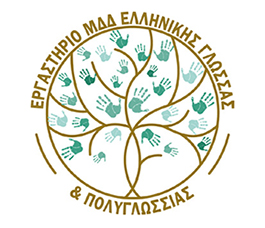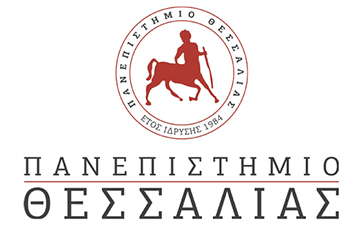Partners
- Home
- Partners
Partners
UNICEF Greece Country Office

As jointly announced on 20 November 2020, the Greek state and UNICEF mutually agreed to the establishment of a formal presence in the country. This confers the full mandate of UNICEF to Greece, which is to provide assistance to member states to fulfil their obligations to children under the UN Convention on the Rights of the Child (CRC), which Greece ratified in 1993.
As such, the UNICEF Greece Country Office is expanding its support to all state institutions that have a role in ensuring all two million children in the country can fully enjoy their rights.
To date, UNICEF is engaging with counterparts including the ministries of Labor and Social Affairs, Education, Migration, Justice, Interior, Development and Investments, on issues including foster care and deinstitutionalization, inclusive education, youth skills and employability, as well as exploring options to ensure the availability of increased financing for children in the years ahead.
The scope of the UNICEF Greece Country Office initially covers the following topics:
- addressing child poverty, child obesity and child mortality;
- inclusion of children with disabilities in all aspects of society and education;
- promoting alternative community-based forms of care such as foster care, de-institutionalization and supported independent living;
- protection and education of refugee and migrant children;
- the effective participation and inclusion of children and young people in decision-making processes.
Further activities will cover issues of violence in schools, child cyber bullying, the creation of child-friendly cities, etc.
Find out more about UNICEF’s work in Greece. https://www.unicef.org/greece/en/what-we-do
Greek Language and Multilingualism Lab (GLML)

The Greek Language and Multilingualism Lab (GLML) of the University of Thessaly was founded in 1999, and acquired its current name and structure in 2016. It’s a hub of linguistic and glottodidactic research, in close relation with educational projects and actions. Since 2010, Professor George Androulakis is GLML’s Director. GLML webpage can be found here: http://greeklanglab.pre.uth.gr.
GLML’s mission is threefold: Firstly it carries out research on multilingual and multimodal literacies in educational settings; it conducts research and educational projects on the teaching of Greek in formal and non-formal educational settings in Greece, on the teaching and learning of Greek as an additional language to speakers of other languages who live in Greece or in other parts of the world, and on the teaching and learning of Greek and other languages to migrants and refugees; it carries out studies in Greek from a sociolinguistic perspective. GLML’s members have published numerous books and articles in refereed journals and edited volumes.
The Greek Language Laboratory provides its members with a library, archives of printed, digital and audiovisual material, and a bank of research observation equipment.
GLML was the Coordinating partner of 12 European and national projects during the last decade, and received funding from:
- the European Union (EIF, AMIF, Erasmus),
- the Greek and French Governments,
- UK’s AHRC,
- UNICEF and IOM,
- Hellenic Foundation for Research and Innovation (ELIDEK).
Outcomes and deliverables of GLML’s recent and/or current projects include:
- Curricula and learning frameworks
- Language learning materials
- Digital resources
- Teachers Training Packs
- Texts and Recommendations of language and educational policy.
GLML has been twice (2012, 2017) awarded the European Language Label by the European Commission.
I.E.P.

I.E.P. is a scientific agency that provides support to the Minister of Education, Research and Religious Affairs on issues regarding primary and secondary education, post-secondary education, transition from secondary to higher education, teacher training, student dropout and early school leaving. Co-operation with I.E.P. is required for every relevant initiative or action taken by the Ministry of Education, Research and Religious Affairs departments or the agencies supervised by it.
I.E.P. deals with scientific research and study of the issues mentioned above, and provides ongoing scientific and technical support on relevant educational policy planning and implementation.
- E.P. has in particular the following responsibilities:
- It issues opinion, in response to relevant queries submitted by the Minister of Education, Research and Religious Affairs, or ex officio, in relation to the following:
- educational policy formulation, modernisation and implementation in all types of school units,
- primary and secondary education programmes of studies/ curricula, school books and teaching material,
- teacher initial and in-service training, teaching staff selection, scholarship programmes,
- evaluation of the administrative and educational structures of primary and secondary education,
- operation of Greek schools abroad,
- education of expatriated Greeks, immigrants and refugees as well as intercultural education,
- primary, secondary and post secondary education teacher training, training and certification policy of the training agencies.
- It explores and identifies overlaps in educational research or experimental activities carried out by various agencies, issues opinion on ways to avoid those overlaps and utilise available sources in the best way possible.
- It systematically studies issues relating to:
- school life and ways of improvement
- school dropout and early school leaving
- special education as well as the teaching goals and needs of particular groups of the student population
- factors that shape the profile, operation and effectiveness of school units, such as the structure of education, the organizational- administrative system and the physical infrastructure
- design, implementation and development of teacher training educational policy and actions
- It designs and implements support actions on issues regarding the afore-mentioned responsibilities, in view of the implementation of new educational policies.
- It designs the national strategy on teacher training and monitors its implementation in accordance with its responsibilities.
- It gives opinions on the measures and policy for the support and evaluation of school operation.
- The implementation of a particular action can be assigned to I.E.P. and any other relevant issue can be regulated by a schedule agreement between the aforementioned Ministry and I.E.P.
- For any decisions made by agencies supervised by the Ministry of Education, Research and Religious Affairs, and directly related to the responsibilities of I.E.P., cooperation with I.E.P. is required.
- In order to fulfill its purpose I.E.P. cooperates with the agencies of the Ministry of Education, Research and Religious Affairs, the National Council of Education and Development of Human Resources, Higher Educational Institutes and especially with their educational departments, research agencies, educational advisory councils, second level teacher unions, institutions and organizations in Greece and abroad, as well as with other Public or Private sector agencies which have a relevant mission or with the members of the aforementioned agencies.
More information about IEP http://iep.edu.gr/en/#1
- It issues opinion, in response to relevant queries submitted by the Minister of Education, Research and Religious Affairs, or ex officio, in relation to the following:



weaved by web2social
